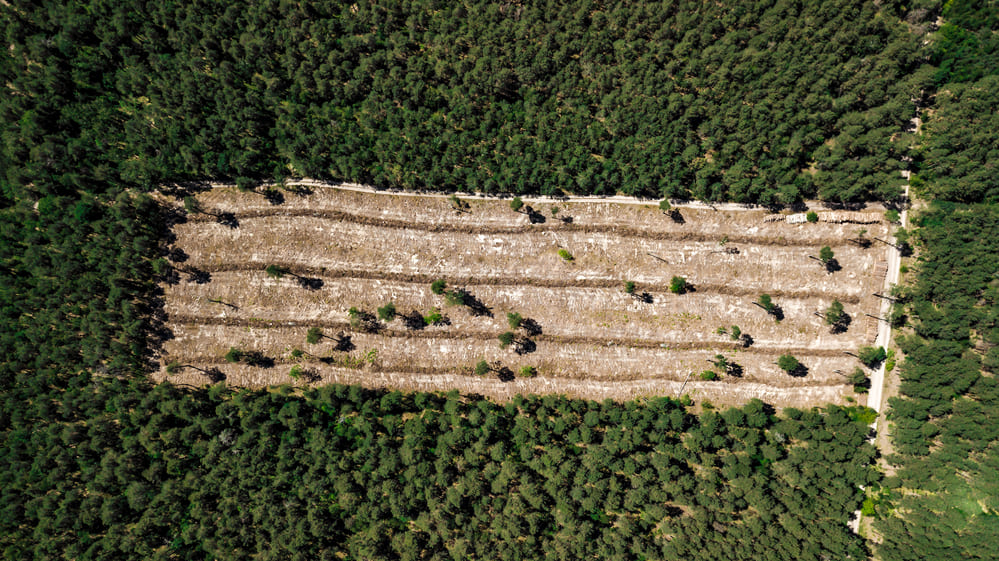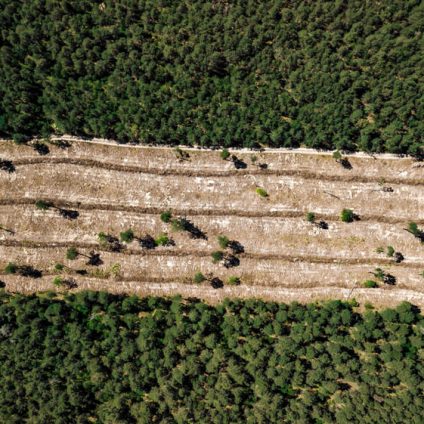The 2025 Forest 500 report by Global Canopy highlights a troubling gap: 168 of the 500 most influential companies linked to forest-risk supply chains have made no public commitments to halt deforestation. This lag endangers the climate, human rights, and global economic stability

Despite global pledges to curb deforestation risk by 2030, 34% of the most influential companies in forest commodity supply chains have yet to take public action to eliminate deforestation from their operations.
The finding comes from the newly released Forest 500 2025 report by Global Canopy, which annually assesses the environmental policies of companies trading in high-risk forest commodities, such as soy, palm oil, beef, leather, timber, cocoa, coffee, rubber, and paper.
Deforestation risk: leaders, laggards, and the “late majority”
The numbers are stark: 168 companies are classified as “laggards”, meaning they are actively hindering progress across the system. Of these, 24 have never made a commitment in 11 years of monitoring. At the opposite end, only 16 companies qualify as “leaders”, demonstrating strong commitments and solid implementation across all evaluated commodities.
“As companies continue to prioritize short-term profits over mounting risks, crucial opportunities to combat deforestation and associated human rights abuses are being lost”, Global Canopy warns.
The report categorizes companies into three groups based on how they address deforestation risk:
- Leaders (3%): strong, proven commitments across all commodities they handle
- Late majority (63%): partial or weak commitments, often limited to commodities under heavy public scrutiny
- Laggards (34%): no public commitments at all
In total, just 3% of companies have effectively implemented measures across all commodities. Only 8% report that over half of their volumes are “deforestation- and conversion-free”, meaning unlinked to forest loss or land use change.
Between greenwashing and backsliding: too many pledges, too little action
Some companies are moving forward: nearly half have made at least one commitment to eliminate deforestation by 2025. However, only a handful are on track to meet that deadline. Many, particularly in the United States, are backtracking by removing or weakening their pledges, according to Global Canopy.
Even companies with partial commitments often selectively target commodities based on media visibility, ignoring other critical sectors. For example, only 37% of companies exposed to beef supply chains—the leading driver of global deforestation—have made specific commitments, compared to 76% for palm oil.
Additional findings include:
- Only 6% of companies have comprehensive rights policies for one or more commodities, and just 1% (seven companies) cover all 6 key indicators;
- Only 30% of upstream companies (production and processing) have mechanisms to trace commodities back to the production unit
- Only 12% of downstream companies (retail and distribution) have complete monitoring systems across all commodities
- Only 11% publicly disclose the total volumes of commodities they use and their compliance with deforestation-free standards
The risks of inaction: climate, agriculture, and economic crises
The stakes could not be higher. Deforestation accounts for 11% of global greenhouse gas emissions. Protecting forests means safeguarding the climate, water resources, biodiversity, and the rights of local communities. Companies’ failure to act exposes them to systemic risks: from extreme weather events—wildfires, droughts, floods—to direct economic damages. In the United States alone, 27 extreme weather events in 2024 caused losses exceeding $1 billion each.
“Without decisive action from the private sector,” the report warns, “the risk of crossing critical climate tipping points, such as the Amazon’s irreversible dieback, becomes increasingly real.”
Inaction also impacts agricultural productivity. Soy yields are declining in the Amazon, while cocoa and coffee prices are reaching record highs due to climate-driven poor harvests. By 2030, agribusinesses could lose up to 26% of their value, the report estimates.












